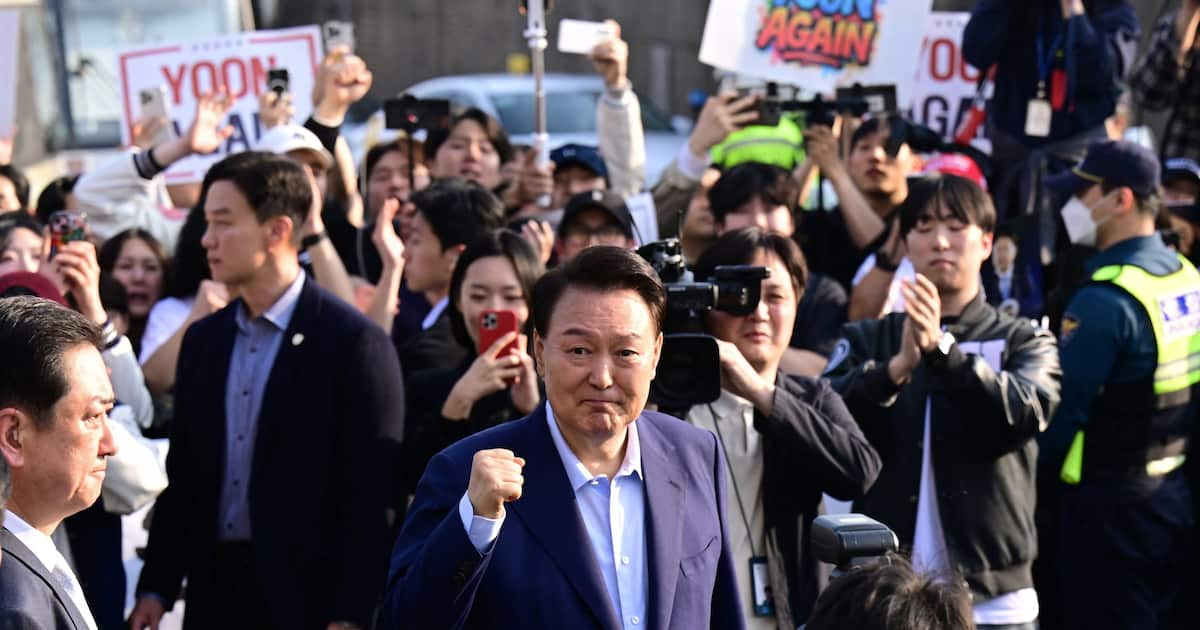Korean Conservatives: Reflecting on the Yoon Suk Yeol Era
The Yoon Suk Yeol presidency, concluding in 2027, marks a significant chapter for South Korea's conservative movement. His administration, characterized by a strong emphasis on economic liberalization and a more assertive stance on national security, has sparked considerable debate and analysis amongst conservatives themselves. This article delves into the key successes, challenges, and lasting implications of the Yoon era for South Korean conservatism.
Yoon's Economic Policies: A Mixed Bag for Conservatives
Yoon campaigned on a platform of bolstering the South Korean economy through deregulation and market-driven reforms. While some initiatives, such as streamlining regulations for small and medium-sized enterprises (SMEs), received positive feedback, others faced criticism.
Successes:
- SME Support: The government's efforts to reduce bureaucratic hurdles for SMEs were largely welcomed by conservative business owners, contributing to a modest increase in job creation.
- Foreign Investment: Initiatives aimed at attracting foreign investment showed some initial success, with several large multinational corporations announcing expansions in South Korea.
Challenges:
- Income Inequality: Critics argue that the focus on deregulation disproportionately benefited large corporations, exacerbating existing income inequality and failing to address the concerns of working-class conservatives.
- Housing Crisis: The persistent housing crisis in major cities, despite government intervention, remains a significant point of contention, particularly amongst younger conservatives.
National Security and Geopolitics: A Strong Stance
Yoon adopted a firmer stance on North Korea, strengthening alliances with the United States and Japan. This approach resonated with many conservatives who prioritize national security.
Key Actions:
- Strengthened US-ROK Alliance: Increased joint military exercises and enhanced intelligence sharing signaled a commitment to a robust defense posture against North Korean threats.
- Improved Relations with Japan: While controversial, Yoon's efforts to improve relations with Japan, a crucial security partner, were seen by some conservatives as a pragmatic necessity in the face of regional challenges.
Public Opinion and Internal Debate:
While these actions were popular with certain segments of the conservative base, they also generated internal dissent within the conservative movement. Some argued that Yoon's approach was too confrontational and risked escalating tensions with North Korea. Others questioned the pace and depth of rapprochement with Japan.
The Legacy of the Yoon Era for Korean Conservatism
The Yoon Suk Yeol presidency will undoubtedly shape the future direction of South Korean conservatism. His emphasis on economic liberalization and a stronger national security posture will influence future policy debates. However, challenges relating to income inequality and the housing crisis highlight the need for a more nuanced and inclusive approach to address the concerns of all segments of conservative society.
Looking Ahead:
- Internal Reconciliation: Future conservative leaders need to address internal divisions and forge a unified vision that appeals to a broader electorate.
- Economic Inclusivity: A greater focus on addressing income inequality and providing opportunities for working-class citizens will be crucial for maintaining conservative support.
- Regional Diplomacy: Navigating complex regional dynamics, including relations with North Korea, China, and Japan, will require careful consideration and strategic diplomacy.
The Yoon era represents a complex and multifaceted period for Korean conservatism. A thorough examination of its successes and failures is vital for shaping the future trajectory of this influential political force in South Korea. The ongoing debate within the movement itself will be crucial in determining how conservatives adapt to the changing political landscape. What are your thoughts on the legacy of President Yoon Suk Yeol? Share your perspective in the comments below.
